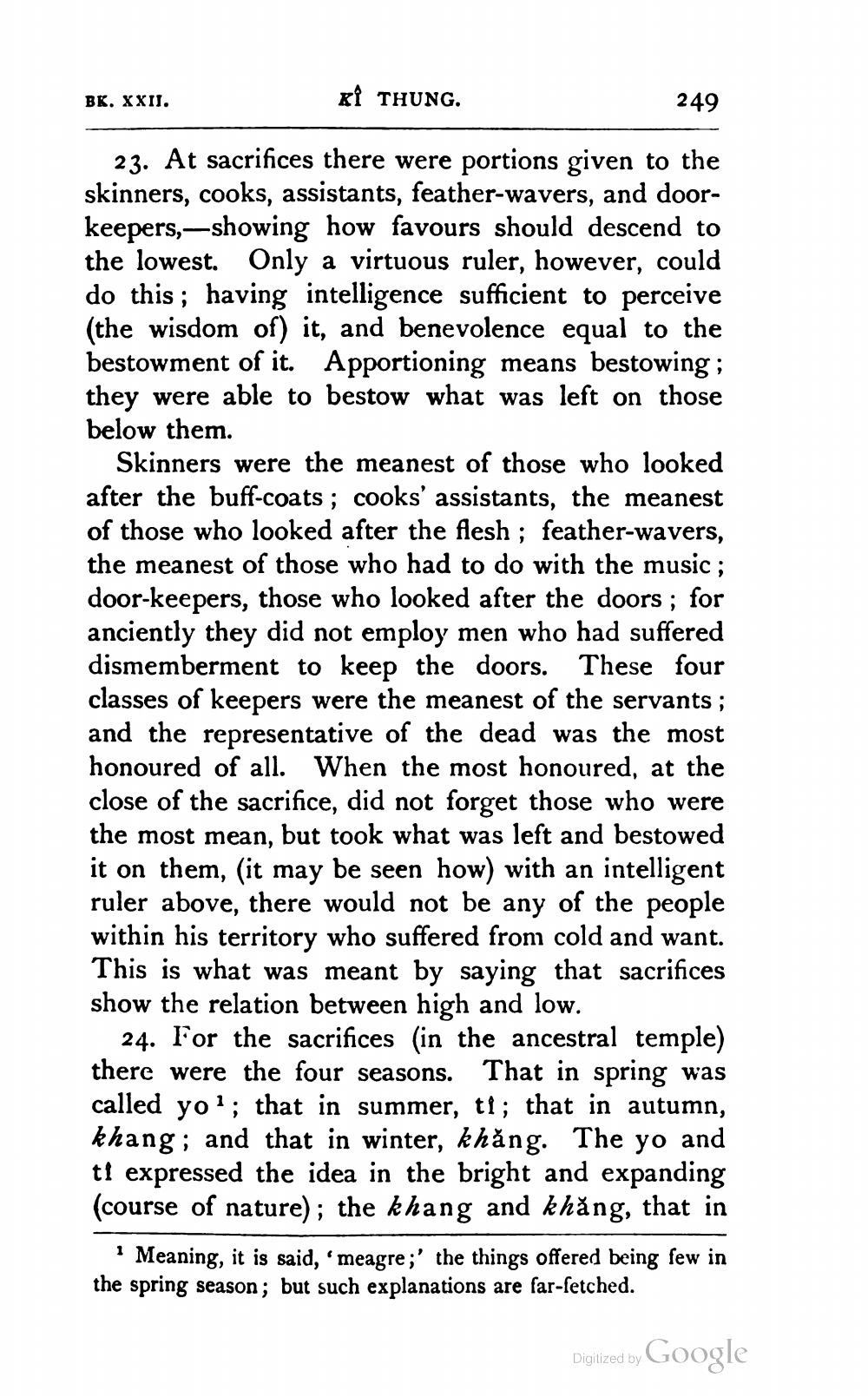________________
BK. XXII.
KỸ THUNG.
249
23. At sacrifices there were portions given to the skinners, cooks, assistants, feather-wavers, and doorkeepers, showing how favours should descend to the lowest. Only a virtuous ruler, however, could do this; having intelligence sufficient to perceive (the wisdom of) it, and benevolence equal to the bestowment of it. Apportioning means bestowing ; they were able to bestow what was left on those below them.
Skinners were the meanest of those who looked after the buff-coats; cooks' assistants, the meanest of those who looked after the flesh; feather-wavers, the meanest of those who had to do with the music; door-keepers, those who looked after the doors ; for anciently they did not employ men who had suffered dismemberment to keep the doors. These four classes of keepers were the meanest of the servants ; and the representative of the dead was the most honoured of all. When the most honoured, at the close of the sacrifice, did not forget those who were the most mean, but took what was left and bestowed it on them, it may be seen how) with an intelligent ruler above, there would not be any of the people within his territory who suffered from cold and want. This is what was meant by saying that sacrifices show the relation between high and low.
24. For the sacrifices in the ancestral temple) there were the four seasons. That in spring was called yo'; that in summer, tt; that in autumn, khang; and that in winter, khăng. The yo and ti expressed the idea in the bright and expanding (course of nature); the khang and khăng, that in
Meaning, it is said, 'meagre;' the things offered being few in the spring season; but such explanations are far-fetched.
Digitized by Google




